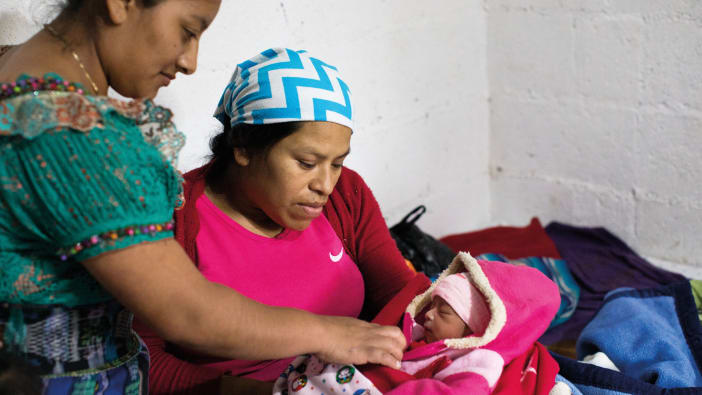‘The rise of chronic non-communicable diseases presents an enormous challenge … Non-communicable diseases deliver a two-punch blow to economies and development. They cause billions of dollars in losses of national income, and they push millions of people below the poverty line, each and every year.’
Dr Margaret Chan, Director-General, World Health Organization
Non-communicable diseases (NCDs) cannot be caught but instead develop because of both genetic (inherited through your family line) and lifestyle factors. The four main NCDs – heart disease, cancer, chronic obstructive pulmonary disease (lung diseases known as COPD) and diabetes – are the biggest cause of death worldwide. More than 36 million people die each year from NCDs (63 per cent of global deaths), including nine million who die before the age of 60. More than 90 per cent of these early deaths are in developing countries and most could be prevented.
Heart disease causes the most NCD deaths (17 million per year), followed by cancer (7.6 million), COPD (4.2 million) and diabetes (1.3 million). Together, these four diseases cause 80 per cent of all NCD deaths.
A burden on communities
For people living in poverty, NCDs can have a serious impact. People often suffer with NCDs for many years, causing families to face a large financial burden, as well as the distress of the disease itself. In many cases, the person who is ill cannot work, or can only work part-time, whilst other family members are also needed at home to care for them. The cost of medical care can also push families into debt.
Economic growth is affected because if people are ill, they do not contribute to the economy. Many governments are realising that preventing NCDs is an important way of reducing poverty.
Shared risk factors
The four main NCDs share four common risk factors which increase the chance that a person will develop heart disease, diabetes, cancer or COPD:
- tobacco use
- physical inactivity
- the harmful use of alcohol and
- poor diet.
At community level, health workers, churches and other community groups can carry out health promotion and education about the main shared risk factors. They can also provide support for people who want to change their lifestyles, for example by stopping smoking or improving their diets. Individuals can play their part by becoming champions of better health and making healthy living attractive to those around them.
For more information about how NCDs are being put on the world agenda, visit the NCD Alliance website: www.ncdalliance.org









